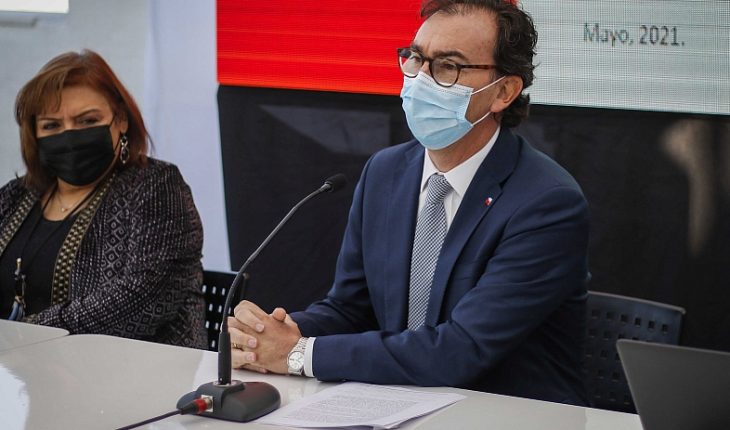Between March and April of this year, 7,000 schools and 1.8 million students in the country performed the Comprehensive Learning Diagnostics (DIA), developed by the Education Quality Agency to measure the learnings achieved by the students of each establishment during 2020, and to know their socio-emotional status after the suspension of face-to-face classes resulting from the pandemic. The results of each diagnosis were translated into reports, which were already delivered to each school, and detailing at the course and student level under what conditions students arrived at the start of the 2021 academic year.This so that each educational community can guide their strategies and use the resources willing to strengthen the aspects in which their students were most affected. The data obtained at the national level, in more than 73 thousand reports, were delivered by the Agency to Mineduc this week, and yielded alarming results: at the academic level, students between the sixth basic and 4th half did not achieve the minimum necessary knowledge – as the measurement was made on the curriculum already prioritized – in reading or in mathematics. Specifically, in reading none of the courses reached 60% of the apprenticeships, a percentage that in an equivalence in notes is 4.0. In mathematics the situation is more dramatic, as none of the levels exceeded 47% and in the middle students learned only 27% of what they had to learn last year. At the socio-emotional level, 70% of children and young people said they had difficulty expressing their emotions; 9 out of 10 young people in the 3rd and 4th grades noted that the period they did not attend school adversely affected them in their learning, and 45% of children of high vulnerability indicated that they would like teachers to ask them what it has been like to be away from school. The figure is accentuated in 4th basic schoolchildren, where it reaches 71%.” We are facing an educational earthquake and the aftershocks can be felt for years. In crises there are people who are paralyzed and people who act, and here we all need to act together to give back to the children the learnings they lost last year and the training tools they have not been able to develop, because we no longer have a second to lose,” Minister Raúl Figueroa said after presenting the results. Daniel Rodríguez, executive secretary of the Education Quality Agency, said: “The enormous commitment of schools to the learnings of their students was clearly shown in the coverage and participation achieved, over 81%. But the results are worse than expected: it had already been advanced by several international institutions, but it is very shocking to see it found in the data and testimonies of the directors they applied. The system won’t recover on its own and we have a lot of work to do. The Agency will continue this task: from 14 June on june, a monitoring assessment will begin for the progress of this first semester.” To address this diagnosis, Mineduc has been working since March on the Chile Recupera y Aprende plan that includes three main axes of action. First, a leveling based on curriculum prioritization to focus teaching on the objectives essential for the continuity of studies at each level. In addition to flexibility, so that establishments can implement the curriculum according to their methodologies and internal organization. This is in addition to the support that the Ministry has provided to educational communities such as the Leo and Sumo Primero plans that provide content reinforcement to first- to fourth-basic students, reaching more than 675,000 students and 15,000 teachers. Free Scripture Journals that reach more than 1,300,000 students and encourage critical thinking, creativity, and motivation to write. All of these plans are part of the Up Schools program that provide accompaniment and support to establishments in the recovery and leveling of apprenticeships through resources consisting of teacher and student guides, monitoring tools, and teacher support strategies such as deepening seminars and demonstration classes. To date for Language and Mathematics, more than 800 guides have been developed with more than 180 thousand downloads for the levels with which the Plan works from 3rd basic to 2nd half. In addition, 43 deepening seminars and demonstration classes have been held, which have been observed by more than 8,000 teachers nationally and which allows them to improve their contents day by day.” As Ministry of EducationWe know how relevant the learning process is and we want to tell educational communities that they are not alone in this work. The Escuelas Arriba plan allows direct advice to be accompanied by direct advice to educational establishments, either telematically and with more than 1,500 field visits to the highest priority establishments. Every day counts in the development and learning of the children of our country,” he added. The Learning Diagnosis for the first time made it possible to know the socio-emotional situation of students in pandemics. Ahead of the results, the Mineduc had already been working on this subject with a Socio-Emotional Learning Set to promote positive coexistence: Clementina’s tales, Game What Emotion!, Emotional Meter, Parent and Proxy Orientations and the Emoticlub animated series that addresses the 4 basic emotions through different stories. These tools take on greater relevance not only among families but also in schools that have become a meeting space, a priority for students.
translated from Spanish: Middle-school students did not achieve the necessary 60% of learning
May 27, 2021 |





